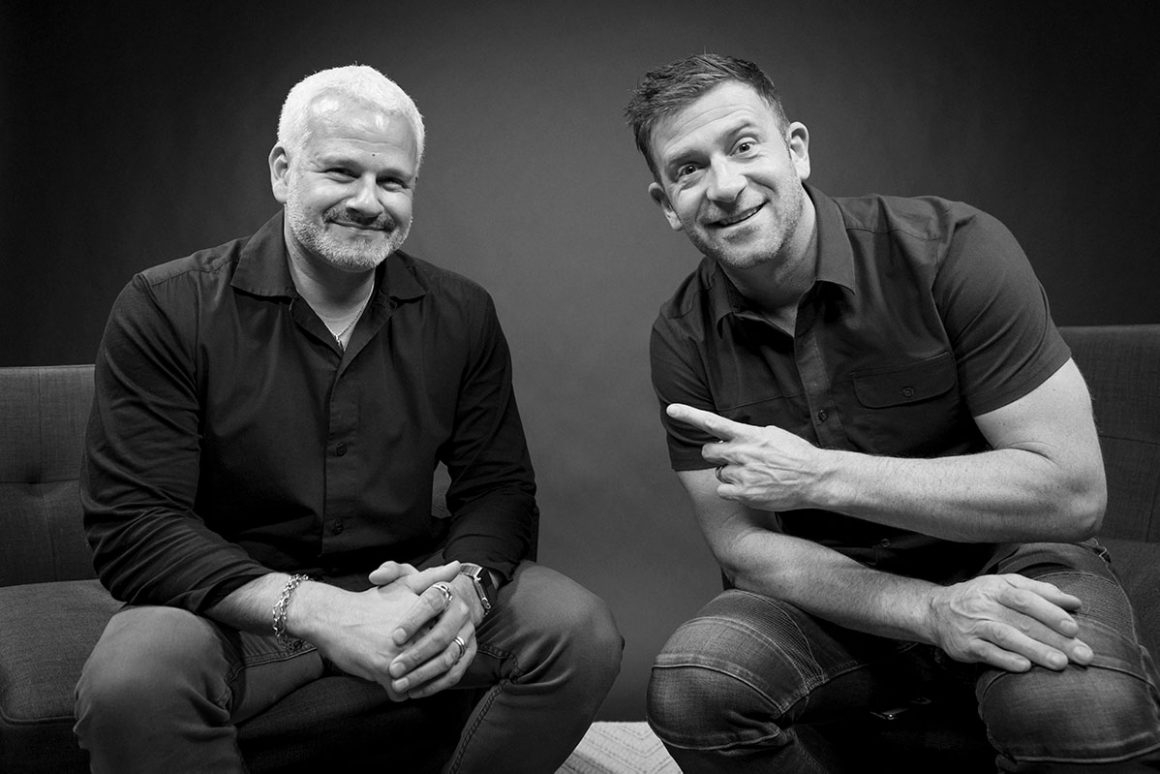
Adam Gazzaley is a neuroscientist, speaker, entrepreneur, photographer, author… He’s a hyphen through and through. But what he’s obsessed with these days is using technology to retrain and improve the use of our human brains, using it even to treat ADHD and other mental conditions.
Now more than ever before the world is moving at a pace faster than our 2 million year old brains can catch up. Adam says that as a species our brains aren’t evolving quickly enough so we’re experiencing a cognition crisis and the fallout of this crisis are attention deficit disorders. Through the application of treatments involving video games and mindfulness practices, we can not only be more productive in our life, but also feel more fulfilled in our lives. We talk about how to build our minds to increase our attention, expand our perception, improve our decision making, and better regulate our emotions.
In today’s episode:
- The brain is a muscle – it’s trainable.
- We may soon be entering a time where doctors prescribe digital medicine – video games as medication for ADHD. Even if you don’t have ADHD or another attention deficit disorder, you can still benefit from training your brain.
- You can use monotasking and mindfulness to fight anxiety and be more productive.
- The world needs wisdom. Part of the wisdom is the development of our intuition and internal awareness. It’s the foundation of how we approach all things and each other.
Enjoy!
Meditation practices are essentially attention training exercises.
FOLLOW ADAM:
facebook | twitter | instagram
Listen to the Podcast
Watch the Episode
Subscribe




Some Questions I Ask:
- Tell me about how you’re using technology to better know the human brain. [1:45]
- How did you get interested in this and why are you where you are today? [6:00]
- What do you do in your lab down the street? [9:18]
- What can people do now to train their brains? [11:25]
- What is going on in the brain that makes it possible to treat conditions with video games and what are the implications onto other parts of our life? [19:15]
- What do you believe that playing video games is capable of changing in the human brain? [23:00]
- What effect will the work that you’re doing have on creativity in the future? [28:20]
- Is it ironic that we’re trying to use technology to solve problems caused by technology? [30:18]
- The evolutionary explanation for why we have such conflict between what we want to do and what we’re capable of doing. [31:20]
- What are some of the patterns that you’ve seen for strategies to help mitigate the anxiety caused by our current lifestyles? [36:16]
- How do you reward yourself while you’re breaking habits? [40:29]
- How do you draw the correlation between mindfulness and success? [43:13]
- What’s the most direct paths or hacks to reap the benefits of cognitive fitness? [47:45]
- Is intuition at all related to the work that you’re doing? [51:28]
- Let’s talk about brain drugs, the side effects they have and some of the positives. [59:09]
- You talk about teaching and treating kids, does this all apply to adults too? [1:08:40]
- How do we follow your work online? [1:09:40]
- What do the next 6 months look like for you? [1:10:45]
In This Episode, You Will Learn:
- Check out the first time I had Adam on the show, in the back of an Uber at SXSW festival in Austin, TX. [1:10]
- Adam took the traditional medical route but in 2008 got fed up by trying to throw drugs at problems and decided to try to use experiences as treatment instead. [3:00]
- My first experiences with visualization and programming my mind. [4:50]
- Check out Adam’s book, The Distracted Mind: Ancient Brains in a High Tech World. [9:30]
- How Adam and LucasArts developed a game called NeuroRacer to push your brain to that sweet spot of flow state, which is where there’s most placticity and opportunity for learning. Preliminary test results are in: the game is success as ADHD treatment [12:00]
- The struggles of finding funding for an idea and product that straddles two sectors. [13:00]
- Check out the other 5 brain games that Adam is working on. [19:45]
- How having control of your own brain can help you be more creative. [28:30]
- Why multitasking isn’t an efficient way to be productive. [31:50]
- How to manage technologically induced anxiety. [36:50]
- How training your mind is just like training your body. [41:20]
- Here’s a video where I explain why and how I break my day into 90 minute chunks. [42:00]
- Mindfulness training and meditation are free, ancient ways of cognitive training. [44:30]
- The differences between meditation and mindfulness. [48:25]
- How intuition may be your body’s method of storing information, although I can’t remember what study that hypothesis was from. [54:40]
- There is a science of achievement but it doesn’t mean much if you don’t also study the art of fulfillment. [56:20]
- How photography taught Adam how to get in touch with his emotions. Check out his recently revived photography company, Wanderings. [57:30]
- The plus and minuses with brain drugs, smart drugs, nootropics. [59:45]
- Follow @adamgazz on Twitter and find more info at neuroscape.ucsf.edu. [1:09:50]
This podcast is brought to you by CreativeLive. CreativeLive is the world’s largest hub for online creative education in photo/video, art/design, music/audio, craft/maker, money/life and the ability to make a living in any of those disciplines. They are high quality, highly curated classes taught by the world’s top experts — Pulitzer, Oscar, Grammy Award winners, New York Times best selling authors and the best entrepreneurs of our times. York Times best selling authors and the best entrepreneurs of our times.













